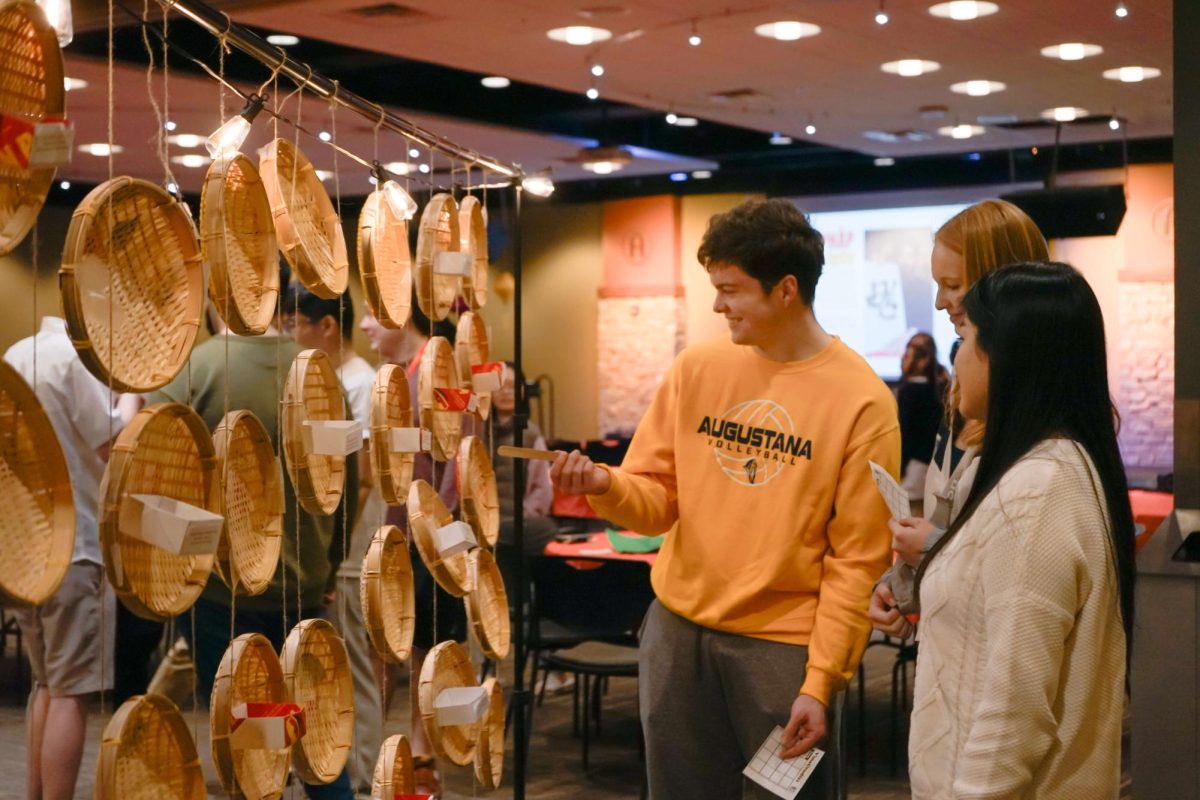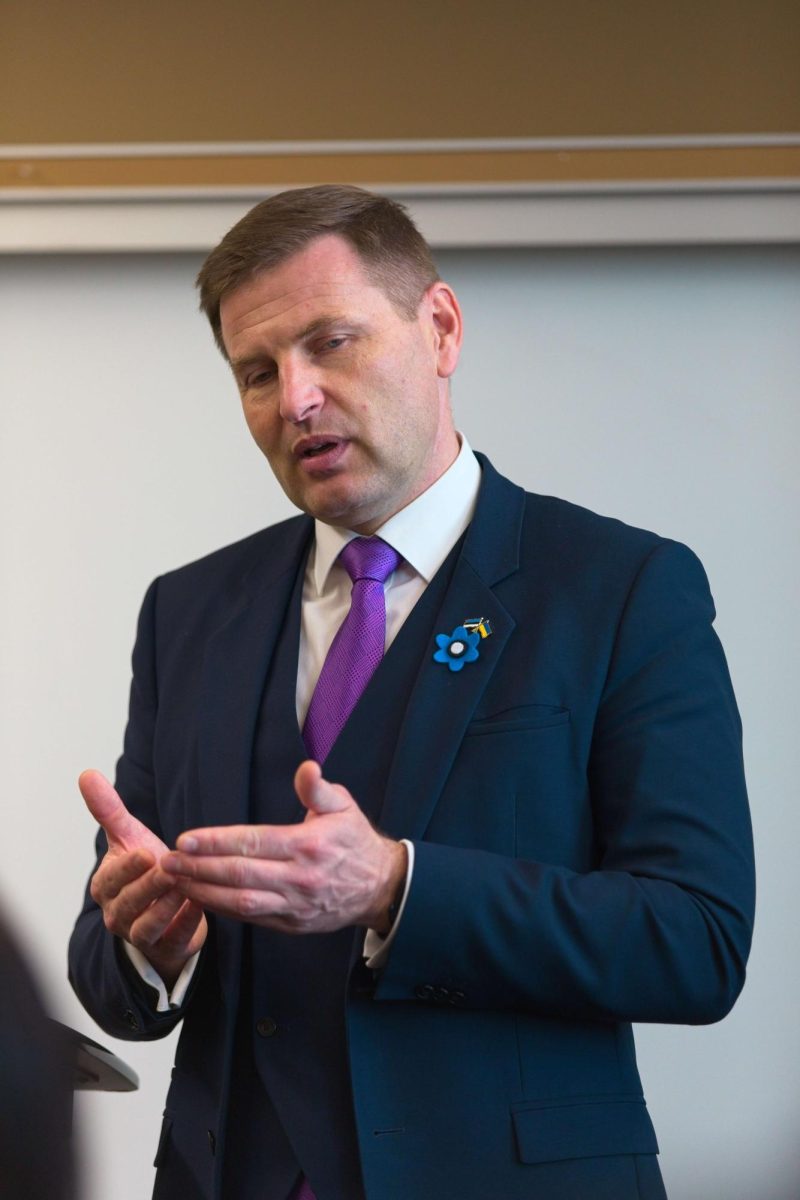Decreased enrollment from 2020-2023 during the COVID-19 pandemic has left Augustana with a deficit of around $7 million, according to Kirk Anderson, chief financial officer and vice president of administration. In response, the college has worked to come up with several solutions to save money and to keep Augustana sustainable.
Some of these solutions may have consequences for contingent faculty members at the college, according to a professor who requested anonymity.
On March 1, contingent faculty, or professors that do not have an official long-term position at the college, were informed of their credit load for next year.
In the words of one contingent faculty member, it was the “least committed letter of commitment” that Augustana could have sent. The college also reserves the right to change a professor’s credit load based on student enrollment and budget. Faculty members whose credit hours were reduced will be informed of their salaries on June 1.
In October 2023, Augustana faculty voted to remove First Year Inquiry 102 (FYI-102) from the curriculum and replace it with a revised FYI 101 course. Since the FYI 101 and 102 course will be eliminated, this also means the number of professors needed to teach the First-Year class is smaller. Next year, only tenured and tenure-track professors will teach the class, according to Dianna Shandy, provost and vice president of academic affairs.
“In the 101 and 102 sequence, there were about 30 tenure/tenure-track faculty who already taught that course across the two sections. And so that means that next year, there wouldn’t be a need for non-tenure track or contingent faculty [to teach that class],” Shandy said. “If we have 30 people who are teaching the course and we need 30 people to teach the new course, there’s a numbers piece for that.”
According to Mariano Magalhaes, political science professor and head of the faculty council, the changes could also reduce the course load of contingent faculty members outside of FYI.
“You have faculty that need to fit into courses, and if the priority is on tenured and tenure track faculty, they are going to be the ones that fill the courses first,” Magalhaes said. “Whatever is left over, it sounds terrible to say this, those will be the ones that we will be able to reach out to contingent faculty.”
According to Anderson, virtually every department will experience budget cuts in the coming years to reduce the deficit.
However, because of these cuts and the changes to FYI, some contingent faculty members fear their jobs and their salaries are at risk.
According to one professor who requested anonymity because they said they feared for their job, “What they have done is they’re rolling out a series of cuts. I know one faculty member has been cut entirely. I know several colleagues that have been demoted from full time to adjunct. I know of at least one adjunct that was bumped down to part time, meaning they no longer have medical benefits, and I’m still waiting.”
The administration says that to continue as a well-rounded educational institution, they had to manage budget cuts across the entire school. The school is committed to prioritizing tenure and tenure-track faculty and student relationships as soon as students arrive at the college by having these professors teach in FYI.
Shandy said one thing that makes Augustana unique is the high percentage of tenure and tenure-track professors, compared to other institutions.
“It’s a lot less expensive to run an institution with non tenure-track faculty, and it’s a different kind of long-term commitment,” Shandy said. “When you come in as a tenure-track faculty member… you come in and you expect to spend your lifetime here, expect to retire from the place where you start teaching your first job, and that’s a very unusual relationship in the landscape of jobs out there.”
Overall, as college grows less and less affordable, Shandy said she is committed to finding a balance between making the courses students need available and making the college affordable.
While working to find this balance, however, some contingent faculty members worry they may be left behind. In general, contingent faculty are paid less and have less job security than tenure and tenure-track faculty.
The professor who wished to remain anonymous said that the changes being made signify that Augustana does not value its contingent faculty on the same level as the tenure and tenure-track faculty.
“This is not the right way to treat people, and as a school that says that they are in support of all the values that Augustana says it’s in support of, how it tries to be a beacon of light to the community around us… they’re not treating people humanely,” the anonymous professor said. “And that’s unjust. That is disadvantaging a group of people because of certain degrees or position titles.”
One issue, according to this professor, is the way the college informed the contingent faculty members of their uncertain job status for next year.
In a letter of compensation from last May, contingent faculty were informed that their job is for “one-year appointment only” and that an offer made for after the 2023-2024 school year will be based on performance. Contingent faculty members can expect to be informed of an offer renewal by March 1, 2024.
However, in the faculty handbook, section 6.3 “Non-Reappointment,” states that non-reappointment of a non-tenure faculty member for the next year must be given in writing by Dec. 15 in a faculty member’s second year at the college, or 12 months before the appointment finishes after the faculty member has worked more than two years at the college.
Magalhaes said that during this time of transition, having clear communication and specific criteria for maintaining full-time status is important for all faculty members.
“That’s something [Faculty Council and contingent faculty representatives] talked to Dianna [Shandy] about. How do we move forward from the confusion that we saw in that first round of course master scheduling to something more coherent, clear and effective and more open and honest, in a way that treats contingent faculty in a humane fashion?” Magalhaes said.
At the end of the day, Magalhaes said the goal is to figure out a way to keep Augustana sustainable as an institution.
“We’ve had these problems for years. It’s just that it came to a head last year when we had lower than anticipated enrollment, higher attrition rate from freshman to sophomore year,” Magalhaes said. “We got into a bit of a jam and so we had to act quickly.”

















































































































